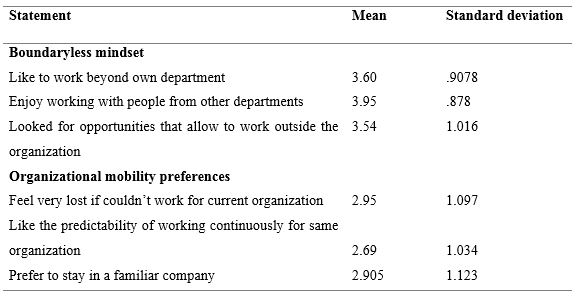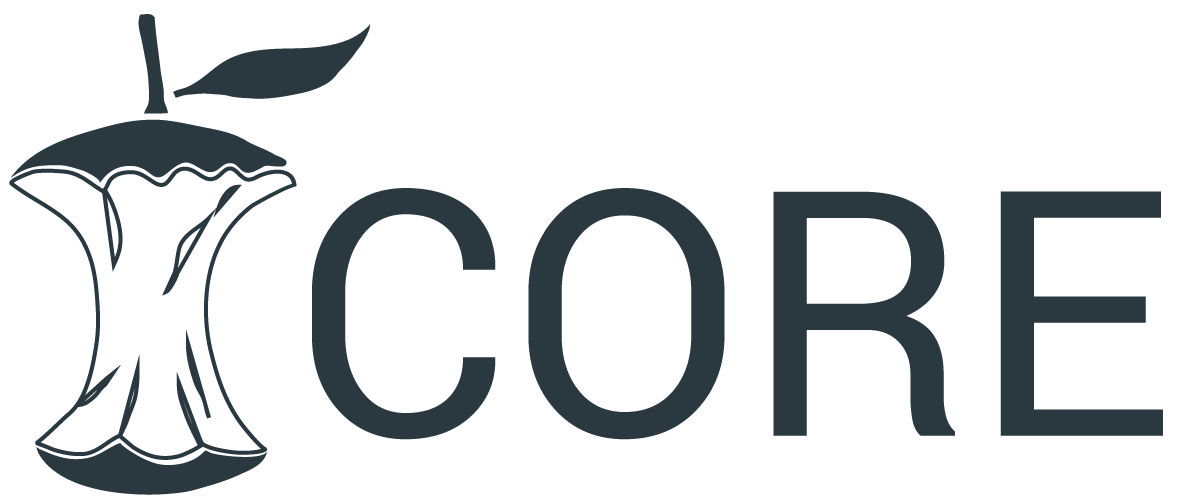Contemporary Career Orientations: An Empirical Study among Student Migrants from Kerala
DOI:
https://doi.org/10.5281/zenodo.15861398Keywords:
contemporary career orientation, protean career, boundaryless career, student migrants, keralaAbstract
Career growth has become both an opportunity and a challenge in the rapidly evolving world of today. Traditional career orientations, characterized by linear advancement within a single organization, have progressively transitioned to more dynamic, self-directed career paths. Protean and boundaryless career orientations are the most prominent among various contemporary career orientations. Migration patterns are increasingly shaping labor markets and educational landscapes. The study of migrant students' career orientations is highly relevant in today's globalized context. The present study aimed to understand the contemporary career orientations, especially the protean and boundaryless career orientations, among student migrants from Kerala. 200 international students from Kerala participated in the study. The study results indicate that the student migrants have a strong inclination toward proactive career orientations. The findings provide valuable insights into various dimensions, such as self-direction, value-driven behavior, boundaryless mindset, and the organizational mobility preferences exhibited by student migrants. The study also carries practical implications for enhancing the career development of student migrants.
Downloads
References
Akkermans, J., Brenninkmeijer, V., Huibers, M., & Blonk, R. W. B. (2013). Competencies for the contemporary career: Development and preliminary validation of the career competencies questionnaire. Journal of Career Development, 40(3), 245–267. https://doi.org/10.1177/0894845312467501.
Arthur, M. B., & Rousseau, D. M. (2001). The boundaryless career: A new employment principle for a new organizational era. Oxford University Press, USA. https://books.google.com/books?hl=en&lr=&id=yona3e7k5GIC&oi=fnd&pg=PR9&dq=Arthur+%26+Rousseau,+2001).&ots=RrRE5U-mKM&sig=cE4d6U410AjH63JiiphEyxtFqLA.
Baruch, Y., & Rousseau, D. M. (2019). Integrating psychological contracts and ecosystems in career studies and management. Academy of Management Annals, 13(1), 84–111. https://doi.org/10.5465/annals.2016.0103.
Bravo, J., Seibert, S. E., Kraimer, M. L., Wayne, S. J., & Liden, R. C. (2017). Measuring career orientations in the era of the boundaryless career. Journal of Career Assessment, 25(3), 502–525. https://doi.org/10.1177/1069072715616107.
Briscoe, J. P., & Hall, D. T. (2006). The interplay of boundaryless and protean careers: Combinations and implications. Journal of Vocational Behavior, 69(1), 4–18.
Briscoe, J. P., Hall, D. T., & DeMuth, R. L. F. (2006). Protean and boundaryless careers: An empirical exploration. Journal of Vocational Behavior, 69(1), 30–47.
Cortellazzo, L., Bonesso, S., Gerli, F., & Batista-Foguet, J. M. (2020). Protean career orientation: Behavioral antecedents and employability outcomes. Journal of Vocational Behavior, 116, 103343.
De Vos, A., De Hauw, S., & Van der Heijden, B. I. (2011). Competency development and career success: The mediating role of employability. Journal of Vocational Behavior, 79(2), 438–447.
De Vos, A., & Soens, N. (2008). Protean attitude and career success: The mediating role of self-management. Journal of Vocational Behavior, 73(3), 449–456.
Defillippi, R. J., & Arthur, M. B. (1994). The boundaryless career: A competency‐based perspective. Journal of Organizational Behavior, 15(4), 307–324. https://doi.org/10.1002/job.4030150403.
Direnzo, M. S., Greenhaus, J. H., & Weer, C. H. (2015). Relationship between protean career orientation and work–life balance: A resource perspective. Journal of Organizational Behavior, 36(4), 538–560. https://doi.org/10.1002/job.1996.
Gerber, M., Wittekind, A., Grote, G., & Staffelbach, B. (2009). Exploring types of career orientation: A latent class analysis approach. Journal of Vocational Behavior, 75(3), 303–318.
Hall, D. T. (2004). The protean career: A quarter-century journey. Journal of Vocational Behavior, 65(1), 1–13.
Herrmann, A., Hirschi, A., & Baruch, Y. (2015). The protean career orientation as predictor of career outcomes: Evaluation of incremental validity and mediation effects. Journal of Vocational Behavior, 88, 205–214. https://doi.org/10.1016/j.jvb.2015.03.008.
Inkson, K., & Baruch, Y. (2008). Organizational careers. Handbook of macro-organizational behavior, 209–223.
Karimi, S., Esmaeili, M., & Yaghoubi Farani, A. (2024). How protean career orientation affects career decidedness: The mediating role of career adaptability and career decision self-efficacy. International Journal for Educational and Vocational Guidance. https://doi.org/10.1007/s10775-024-09702-6.
Maier, G., Rappensperger, G., Rosenstiel, L., & Zwarg, I. (1994). Professional aims and values of future leaders in the old and new federal states. Journal of Occupational and Organizational Psychology, 38, 4-12.
Sathish, G., Mukherjee, T., & Sahney, S. (2024). Expatriate’s protean career orientation and cross-cultural adjustment: The mediating role of career adaptability. Journal of Global Mobility: The Home of Expatriate Management Research, 12(4), 620–647. https://doi.org/10.1108/JGM-03-2024-0020.
Sherry, M., Thomas, P., & Chui, W. H. (2010). International students: A vulnerable student population. Higher Education, 60(1), 33–46. https://doi.org/10.1007/s10734-009-9284-z.
Wiernik, B. M., & Kostal, J. W. (2019). Protean and boundaryless career orientations: A critical review and meta-analysis. Journal of Counselling Psychology, 66(3), 280.

Published
How to Cite
Issue
Section
License
Copyright (c) 2025 Jinu Joy, Prakash Pillai R

This work is licensed under a Creative Commons Attribution 4.0 International License.
Research Articles in 'Management Journal for Advanced Research' are Open Access articles published under the Creative Commons CC BY License Creative Commons Attribution 4.0 International License http://creativecommons.org/licenses/by/4.0/. This license allows you to share – copy and redistribute the material in any medium or format. Adapt – remix, transform, and build upon the material for any purpose, even commercially.









